In 1896, baby incubators were already used as medical equipment in France, while the US still considered them unusual machine. American society held the general belief that premature babies were God's will and that their innate weakness was because they were destined to languish before seeing life fully. One doctor did not agree: Dr Couney. He believed that preemies could "regain" life through attentive care. But since society did not share his belief, he had to be unconventional to gather the funds to support his research.
In 1903, the therapy for a premature infant cost around $15 (the equivalent of $405 now) per day. This price was too expensive for many families. Dr Couney did not charge them a cent. Instead, he displayed the babies on a show in Coney Island and charged 25 cents as entrance fee. Started in 1896, for about 40 years, the infant show kept his research going uninterruptedly. It even became the most popular show of Coney island. The income generated from this show not only covered the costs for a fetal care facility, it had also made Couney a wealthy man.
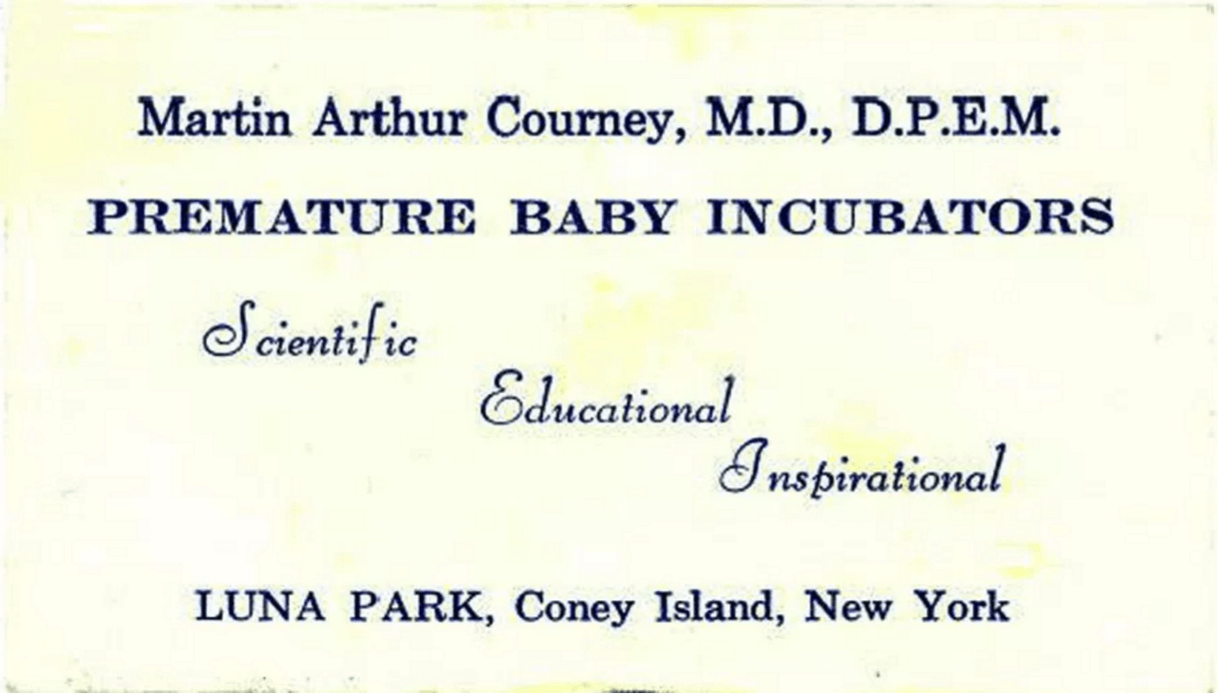 Advertisement of Dr Couney's show on paper.
Advertisement of Dr Couney's show on paper.
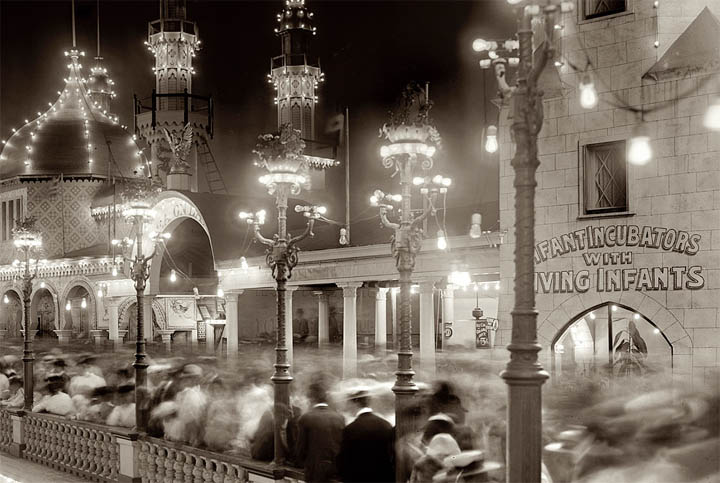 The Infant Incubator show was the most popular of Coney Island.
The Infant Incubator show was the most popular of Coney Island.
Throughout the years, Dr Couney incubated around 8.000 babies and saved at least 6.500 premature infants from death. He was meticulous on hygiene, any nurse caught drinking alcohol or smoking a cigaret would be fired immediately. Dr Couney insisted on breastfeeding and affectionate interactions with new-borns, believing that infants react positively to them. His measures were revolutionary to his time and challenged usual methods, but proved to be scientifically true later on.
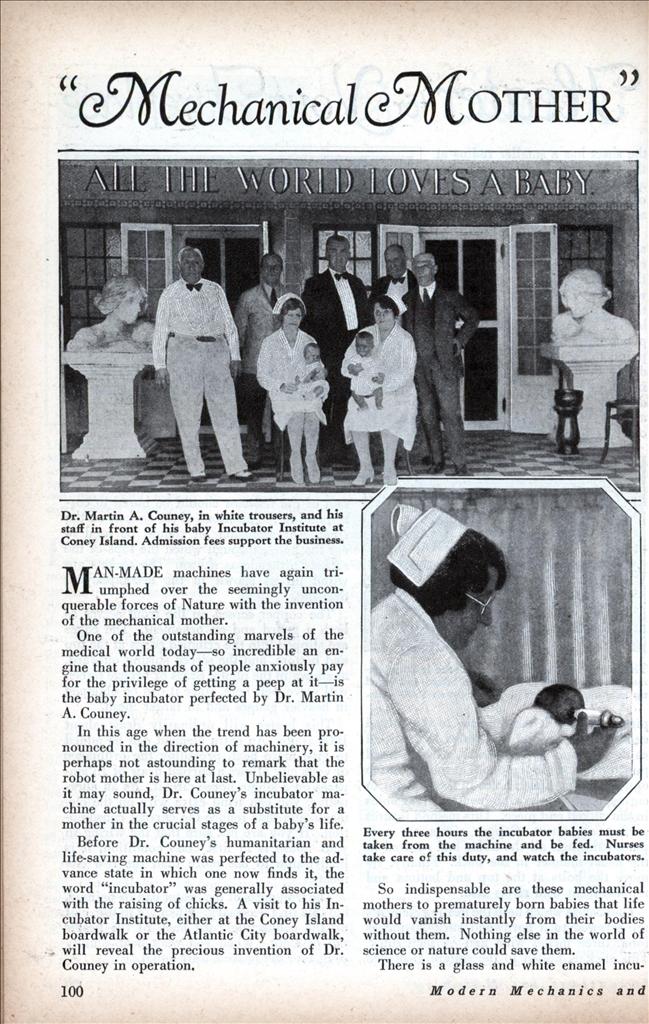 Article on "Mechanical Mother" (March, 1931).
Article on "Mechanical Mother" (March, 1931).
Couney took responsibility to help premature babies to live in a society that did not welcome them very well. He advocated on their behalf with lectures and public appearances, referring to influential people who were born prematurely, including Mark Twain, Napoleon, Victor Hugo, Charles Darwin and Isaac Newton.
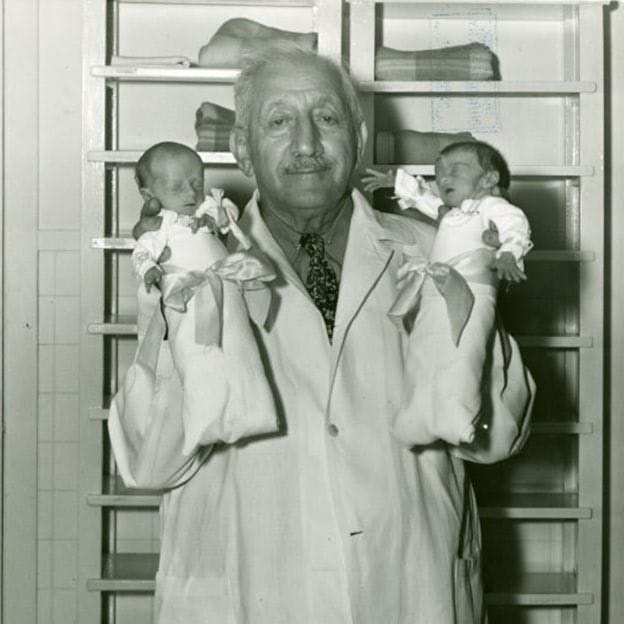 Martin Couney 1869-1950, BBC.
Martin Couney 1869-1950, BBC.
In 1950 Dr Couney passed away at age 80. Looking at that time, it's peculiar that a life-saving technology had to be presented on a freak show to make its way into hospitals as a medical equipment.
This article is part of the Artificial Womb research project by NNN. The goal of this project is to develop thought-provoking scenarios that facilitate a much-needed discussion about the way technology radically alters our attitude towards reproduction, gender, relationships and love in the 21st century. We highly value your feedback or input, contributions can be sent to womb@nextnature.net.
Image: The Blaze
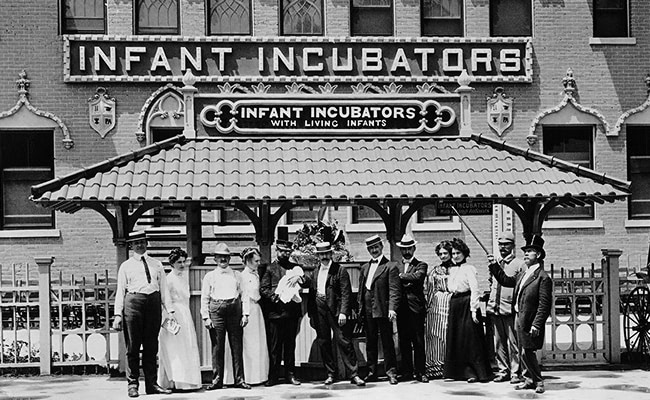
Share your thoughts and join the technology debate!
Be the first to comment